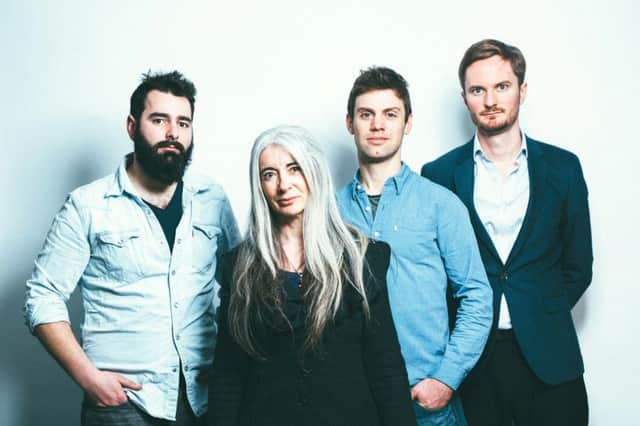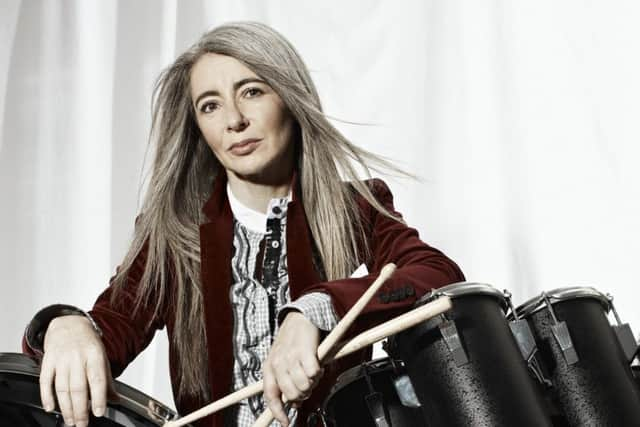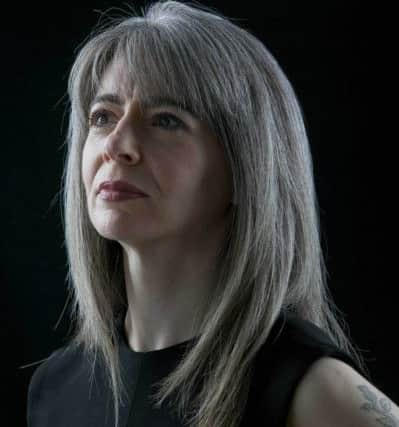Music interview '“ Dame Evelyn Glennie: '˜I knew I would be out of my comfort zone but that's always a good thing for any musician to experience'


When it came to finding a musician of calibre with whom to collaborate on their debut album, improvisational Scottish jazz group Trio HLK certainly set the bar high.
Yet it seems when pianist Rich Harrold, guitarist Ant Law and drummer Richard Kass approached Dame Evelyn Glennie, she was happy to oblige, recording her vibraphone and marimba parts at home. The record, which reworks standards by Miles Davis, Dizzy Gillespie and George Gershwin, was completed with alto saxophone parts by Steve Lehman.
Advertisement
Hide AdAdvertisement
Hide AdNow they are touring, with concerts in Leeds and Hull. Dame Evelyn spoke to the Yorkshire Post about the genesis of the project and more.


How did your collaboration with Trio HLK first come about?
HLK asked if I would like to participate on a couple of tracks on their debut recording. I agreed and so I recorded my parts from my studio at home.
What particularly intrigued you about the music they were making?
What intrigued me was the fact I could not easily categorise their music and I didn’t feel a need to either because it is still developing. I knew that I would be out of my comfort zone in many ways but that’s always a good thing for any musician to experience. I was intrigued by the challenge of stepping into what was an already tight knit unit and to work as a team.


Advertisement
Hide AdAdvertisement
Hide AdHave you enjoyed the way this project has pushed you as a musician – and has the improvisatory aspect pushed you even further when you perform together live?
Yes, very much so. I have always felt comfortable improvising sonically and rhythmically but melodically less so because I have had less need to do that throughout my career. However, much of the music that HLK play is written down due to the rhythmic complexities and relationships between sections of the music. That is why their music is hard to define because there are always these strict and tight structures but within that there’s a sense of freedom. The sonic sound of piano, guitar and drums is not unique but the musical material is and therefore you have the familiar with the unfamiliar.
You have also recently been working with the Royal Shakespeare Company on a production of Troilus and Cressida. What challenges has that presented? And do you now prefer to work on projects closer to home rather than embarking on international concert tours?
I still travel internationally a great deal but the process of travel has changed for all of us. Also, I feel ready to be embarking on different types of projects and collaborations for which they need time to develop rather than rehearsing for a day or two and giving a concert. The RSC project, for which I am in the throes of right now, is fascinating. This is my first time writing for theatre. It’s a whole other world. It’s as though one is in a time capsule. It’s also another way of thinking musically due to the many other elements associated with this medium, such as the spoken word, movement, set, lighting, costumes and so on. It has been a fantastic experience and a huge learning curve which I would like to repeat.
Advertisement
Hide AdAdvertisement
Hide AdYou famously performed at the opening ceremony of the 2012 London Olympic Games. How did you find the experience of being part of something so ambitious and do you think it opened up new vistas for you musically?
The experience was a ‘once in a lifetime’ feeling. The magnitude of the event, its impact on the nation and the absolute team-work involved were incredible. It’s hard to know what opened up following the event for me as a musician as the diary was busy with already diverse things so in a way life went on! It was perhaps more interesting to see the general public talking about drumming and the power of music and how it affected them in ways that is difficult to put into words. Even now, people still feel goose bumps about the occasion.
You began your musical career performing in the National Youth Orchestra of Scotland. Are you concerned that cutbacks have perhaps reduced the opportunities for children to learn and perform music in schools?
Yes, but I have come to realise that the music business is a very different place now than when I grew up. There are more young people involved in music due to technology. Music institutions now offer courses in media music-writing and sound design (this did not exist when I was a student) which can be extremely lucrative and does not always require the ability to play an actual instrument. There are several examples, due to the advancement of technology, that have created new opportunities for young people to be involved and skilled in. Of course we must keep the need for youngsters to be given the opportunity to learn musical instruments and to keep live performances as a major force in their development and adult lives but we can also embrace the other opportunities that have arisen too.
Advertisement
Hide AdAdvertisement
Hide AdBack in 1992 you premiered James MacMillan’s concerto Veni, Veni, Emmanuel with the Scottish Chamber Orchestra. How significant do you think that piece has been in changing the way percussion has been perceived in classical music? Do you feel it has encouraged other composers to write more for solo percussion?
Yes, Veni Veni really had a massive impact on the world of percussion and gave orchestras worldwide faith to programme other percussion concertos. It also ignited great intrigue for the audiences too. Indeed, more composers wrote for solo percussion because they saw the emotional impact percussion could have and they had the support of major orchestras performing their pieces. The domino effect of Veni Veni was considerable.
Have you witnessed any changes in the classical world since you expressed concerns few years ago about the way concerts were presented? What more could be done to make classical music more accessible to a broader audience?
I think the world of technology and social media has made the music world in general rethink what and how they do things, not just the classical world and not just in performance either but how things are recorded, distributed, how artists promote themselves, it has changed the role of agents and managers, how audiences view and can interact with performances and artists. We’re talking about changes right across the board on all levels. Orchestras are redefining the music they play; instead of using the term ‘classical music’ they are replacing with ‘orchestral music’. That is a much more accurate term as ‘classical’ refers to a particular period of music whereas ‘orchestral’ deals with huge historical and contemporary periods and embraces all music written for orchestras such as film music. The industry is in a highly creative landscape at the moment because of this shift and technology has made everyone get out of their comfort zone and redefine what they do and how they do it.
Advertisement
Hide AdAdvertisement
Hide AdHow much progress have you been able to make with your idea of opening your large collection of instruments to the public?
For the past two years I have had up to four fantastic volunteers working on every aspect of the archives for which the instrument collection is only one part of it. We are building the ‘story’ of my journey as a musician. It is a huge task and it will take several more years to collate. The digital age has made it more challenging to collate material in an organised way. We are currently now working out the best database for us to feed all the information into. The aim is to have a physical centre, which will focus on listening and the implications of that from the stand point of business, sport, arts, education, religion, social sectors and many more. The centre will house the collection of instruments but that will only be one part of the equation. We aim to make elements of my own story adaptable and portable so that other locations can put on/display exhibits or elements of this journey.
Having worked with such a diverse selection of musicians during your career, from Bjork to The King’s Singers, is there anyone else you would still like to collaborate with, and why?
There are many I would like to collaborate with but Kate Bush and Eminem are two people on my wish list. They are such creative people, instantly identifiable, I love their work and respect how they have pushed the boundaries in what they do.
Dame Evelyn Glennie and Trio HLK play at the Howard Assembly Room, Leeds on November 16 and Hull Truck Theatre on November 17. www.evelyn.co.uk